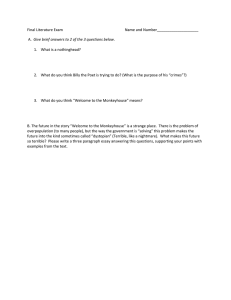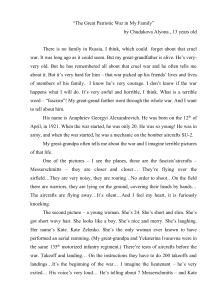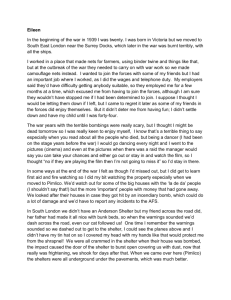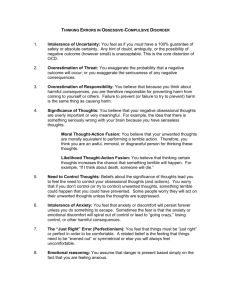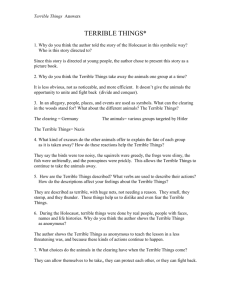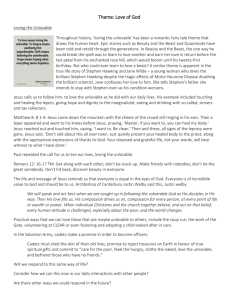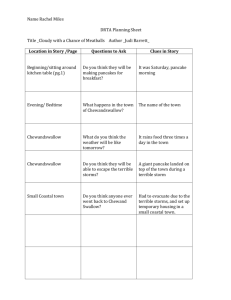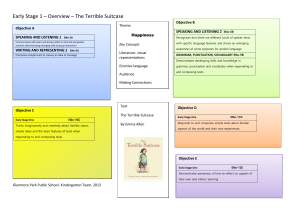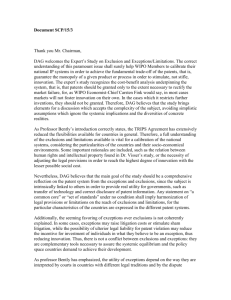cognitive distortions in depression
advertisement
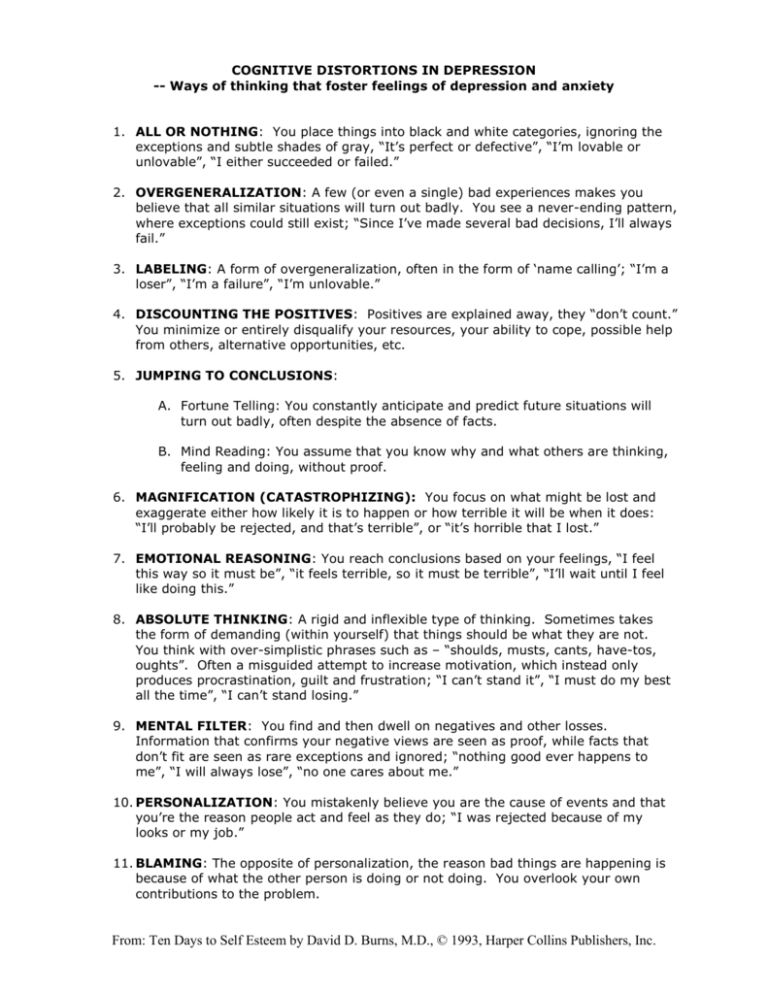
COGNITIVE DISTORTIONS IN DEPRESSION -- Ways of thinking that foster feelings of depression and anxiety 1. ALL OR NOTHING: You place things into black and white categories, ignoring the exceptions and subtle shades of gray, “It’s perfect or defective”, “I’m lovable or unlovable”, “I either succeeded or failed.” 2. OVERGENERALIZATION: A few (or even a single) bad experiences makes you believe that all similar situations will turn out badly. You see a never-ending pattern, where exceptions could still exist; “Since I’ve made several bad decisions, I’ll always fail.” 3. LABELING: A form of overgeneralization, often in the form of ‘name calling’; “I’m a loser”, “I’m a failure”, “I’m unlovable.” 4. DISCOUNTING THE POSITIVES: Positives are explained away, they “don’t count.” You minimize or entirely disqualify your resources, your ability to cope, possible help from others, alternative opportunities, etc. 5. JUMPING TO CONCLUSIONS: A. Fortune Telling: You constantly anticipate and predict future situations will turn out badly, often despite the absence of facts. B. Mind Reading: You assume that you know why and what others are thinking, feeling and doing, without proof. 6. MAGNIFICATION (CATASTROPHIZING): You focus on what might be lost and exaggerate either how likely it is to happen or how terrible it will be when it does: “I’ll probably be rejected, and that’s terrible”, or “it’s horrible that I lost.” 7. EMOTIONAL REASONING: You reach conclusions based on your feelings, “I feel this way so it must be”, “it feels terrible, so it must be terrible”, “I’ll wait until I feel like doing this.” 8. ABSOLUTE THINKING: A rigid and inflexible type of thinking. Sometimes takes the form of demanding (within yourself) that things should be what they are not. You think with over-simplistic phrases such as – “shoulds, musts, cants, have-tos, oughts”. Often a misguided attempt to increase motivation, which instead only produces procrastination, guilt and frustration; “I can’t stand it”, “I must do my best all the time”, “I can’t stand losing.” 9. MENTAL FILTER: You find and then dwell on negatives and other losses. Information that confirms your negative views are seen as proof, while facts that don’t fit are seen as rare exceptions and ignored; “nothing good ever happens to me”, “I will always lose”, “no one cares about me.” 10. PERSONALIZATION: You mistakenly believe you are the cause of events and that you’re the reason people act and feel as they do; “I was rejected because of my looks or my job.” 11. BLAMING: The opposite of personalization, the reason bad things are happening is because of what the other person is doing or not doing. You overlook your own contributions to the problem. From: Ten Days to Self Esteem by David D. Burns, M.D., © 1993, Harper Collins Publishers, Inc.
